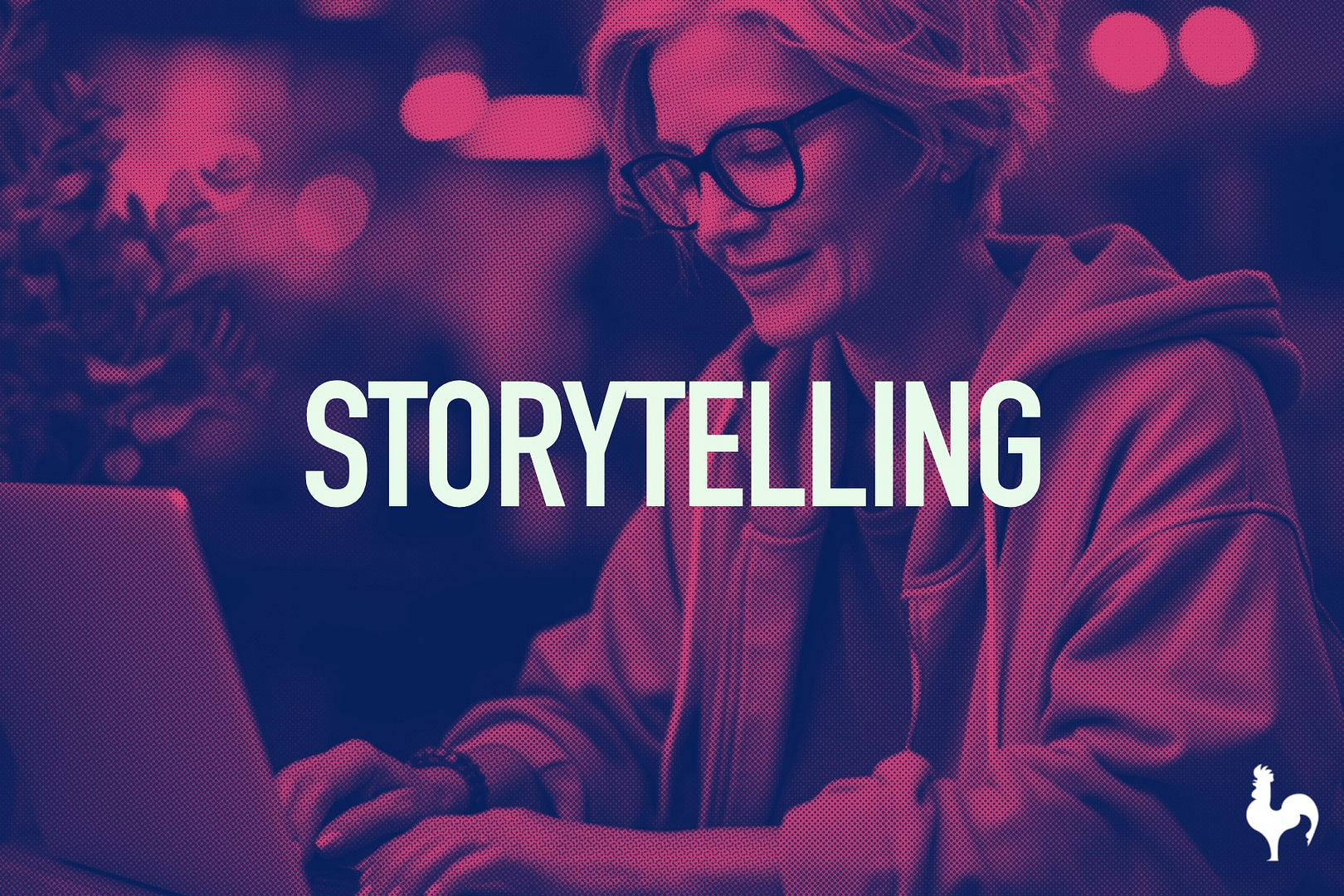From ancient cave paintings to the latest digital content on social media platforms, the essence and power of storytelling remain unparalleled. In the modern digital landscape, whilst platforms and mediums have evolved, the human brain’s intrinsic connection to narratives remains unchanged. This affinity stems not just from cultural or societal norms but deeply rooted neurological pathways that have evolved over millennia.
The Science Behind Our Love for Stories
Understanding the human mind’s fascination with stories requires delving deep into our evolutionary history, neural architecture, and the very fabric of our social constructs. Stories, as it turns out, are more than just a pastime; they are crucial for our cognitive development and social survival.
When we immerse ourselves in a gripping narrative, it isn’t just the linguistic parts of our brain that light up. Multiple regions engage in a complex dance of comprehension, empathy, visualisation, and emotional resonance. This intricate neural ballet makes stories a potent medium, far surpassing the impact of isolated facts or standalone data.
Emotions play a pivotal role in our cognitive processes. A compelling story, laden with emotional triggers, gets anchored deep within our memory structures. This is because narratives that evoke emotions stimulate a potent cocktail of neurochemicals, ensuring the story is not only enjoyed in the moment but also remembered long afterwards.
Mirror neurons, a relatively recent discovery in neuroscience, further accentuate our love for stories. These specialised neurons blur the boundaries between the storyteller and the listener. When we read about a character’s experience, these neurons fire up as if we were experiencing those very events, making stories deeply immersive and personal.
This deep-seated neurological affinity for narratives is also why storytelling has been an integral part of every culture. Across continents and throughout the ages, stories have been the primary vehicle for transferring knowledge, instilling morals, and building communal bonds.
Challenges of Storytelling in the Digital Realm
The rise of the digital age has revolutionised storytelling. With a plethora of platforms and an ever-evolving digital landscape, storytellers have a vast canvas to paint on. However, this new realm is not without its challenges.
In today’s hyper-connected world, the struggle for attention is real. The modern audience is inundated with content, leading to a paradox of choice and significantly shortened attention spans. For a story to resonate in such an environment, it needs to captivate the audience quickly and offer consistent value to maintain their engagement.
Another challenge is the sheer volume of content. The digital realm has democratised content creation, leading to an avalanche of narratives vying for attention. In this cacophony, crafting a unique, authentic story that stands out is a daunting task.
The search for authenticity is further complicated by the transient nature of the digital age. Stories today need to resonate with truth, touching the audience’s heartstrings, all while being concise and tailored for digital consumption.
Moreover, with the rise of artificial intelligence and algorithm-driven content recommendations, ensuring that a narrative reaches its intended audience requires not just compelling content but also an understanding of the digital ecosystem’s intricacies.
Opportunities in Digital Storytelling
Despite the challenges, the digital age offers storytellers opportunities that were once beyond imagination. The tools, platforms, and reach provided by digital advancements have redefined the very fabric of storytelling.
Visual narratives have gained paramount importance in the digital age. With platforms like Instagram, Pinterest, and TikTok, a story can now be told more vividly using images, videos, and animations. This shift towards visual storytelling leverages the human brain’s innate ability to process images faster than text, making visual narratives more engaging and memorable.
Interactive storytelling is another frontier being redefined by the digital age. Platforms that allow users to choose their narrative paths or influence the story’s outcome are making waves, offering a more personalised and engaging storytelling experience.
Emerging technologies like Augmented Reality (AR) and Virtual Reality (VR) are poised to redefine storytelling further. By offering fully immersive narrative experiences, these technologies ensure that stories are not just heard or seen but lived.
For brands and marketers, the digital age offers a treasure trove of storytelling opportunities. From leveraging user-generated content to crafting interactive brand narratives, the possibilities are as vast as they are exciting.
Conclusion
The ancient art of storytelling, which has been an integral part of human evolution and culture since ancient times, continues to flourish and transform in the ever-changing digital age. With the rapid advancements in technology and the continuous evolution of the digital landscape, one thing remains unchanged: our deep-seated affinity for captivating narratives. Whether it’s a concise and thought-provoking 280-character tweet, an engrossing and informative podcast, or an awe-inspiring and immersive augmented reality (AR) experience, stories still hold a central position in fostering human connection and facilitating effective communication. In this era of unprecedented digital possibilities, individuals who are willing to embrace the challenges and capitalise on the vast opportunities presented can truly witness the dawn of a new golden age of storytelling.
FAQs
How has the digital age transformed traditional storytelling?
Digital storytelling leverages technology for interactivity, visual appeal, and global reach, offering a more dynamic and expansive narrative experience.
Why is storytelling so deeply ingrained in human culture and psychology?
Beyond entertainment, stories serve as tools for knowledge transfer, moral teachings, and community bonding. Neurologically, our brains are wired to prefer narratives for information processing and emotional resonance.
How can brands effectively use digital storytelling?
By focusing on authenticity, emotional connection, and leveraging modern digital tools and platforms, brands can craft compelling narratives that resonate and engage.
What are the emerging trends in digital storytelling?
AR, VR, AI-driven narratives, and interactive storytelling are some of the emerging trends set to redefine the narrative landscape.
How can storytellers navigate the challenges of the digital age?
By understanding the digital audience, staying authentic, leveraging the right platforms, and continuously adapting to technological advancements, storytellers can craft narratives that stand out and make an impact.







